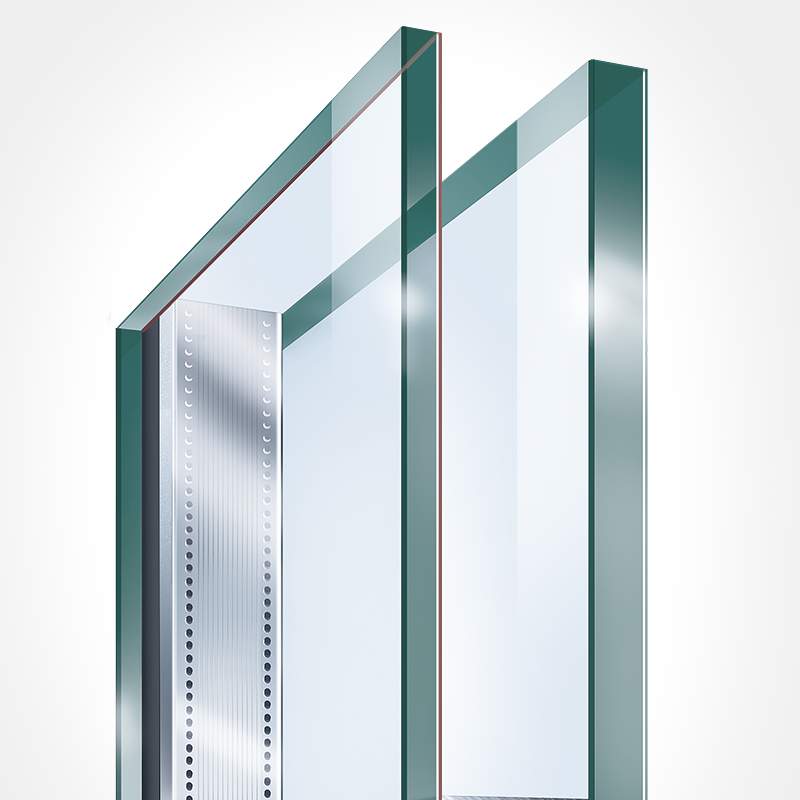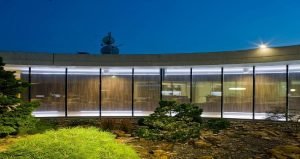Acoustic Double Glazing – The Perfect Addition To Commercial Buildings
Noise pollution is a common occurrence everywhere, regardless of whether you’re in a place where an artery is busy or your neighbour just acquired a cute puppy that cannot stop barking. It’s possible that you won’t be able to block out irritating or disturbing noises from your area, however, you can minimise the noise inside using windows that are able to block out sound.
Sefaköy’ün çıtır bayanları sefaköy escort web sayfasında.
Windows that look like saints won’t completely block out noise, but they will significantly reduce the amount of noise. The most effective acoustic double glazing for homes can block 95 percent of the noise that comes from the street. Here’s what you need to be aware of when it comes to noise reduction.
Highlights
- Window noise-cancelling (or the noise proofing) windows can block up to 95% of the volume of sound
- They also add weight or space to windows, which prevents sound waves from travelling through
- Window noise cancellation is priced from 14 to 88% more than regular windows.
- The most efficient noise-cancelling windows are those with an STC Rating of 45 or higher
What is an acoustic window? The principal purpose behind the glass of acoustic windows is to reduce sound. They are soundproofed to outside noises such as main highways and motorway traffic overhead flights trains rain, sounds of animals against the glass.
The soundproofing glass can be put in structures to function as windows to be used for internal purposes or partitions for offices. It’s similar to laminated glass.
It is this sandwiched layer that acts as the primary istanbul Escort Hizmetleri element that absorbs vibrations and reduces the frequency of the vibrations. Acoustic glass cost thickness could have some difference to the insulation’s quality.
Benefits
1. Sound Reduction

Our soundproofing glass has the ability to limit the sound level to a respectable 40dB that’s 14 decibels greater than the noise levels that some double-glazed window installation units can achieve. Compared to regular windows, Acoustic glass is able to reduce sound by up to 60. With these amazing advantages of indoor sound homeowners can enjoy a peaceful environment.
2. Impact Security & Safety

Acoustic windows provide a greater level of protection than traditional double-glazed windows. Since they’re an insulated type of glass that has a PVB interior layer it is less likely to fracture into smaller pieces upon an impact of force. It will help to hold the pieces that have broken together and prevent access to the window. It will lower the possibility of injury.
3. Cut To Size
Acoustic laminate is typically offered in stock sizes of varying thicknesses. If you require custom dimensions, we can arrange that the laminated glass is cut to the correct dimensions to fit into the frames you’ve selected.
4. The Majority Of Window Styles
Acoustic glass can be utilised to complement different window frames and profiles. It doesn’t matter if your windows are fitted with Georgian bars or decorative inserts or leaded windows. We can cut the noise-reducing glass to the proper size to meet your requirements.
5. A Costly Option
Acoustic double glazing tends to be more expensive than conventional windows. This is because the process requires more steps in the manufacturing process and they require multiple different layers. They cost around the same as triple-glazing windows.
6. Properties For Thermal Properties
It’s not a given that laminated glass offers the same performance as double-glazed windows, which helps keep warmth in your home. However, there are windows that are energy efficient as a result of the way in which they’re constructed to create an insulating and acoustic layer.
What Are Noise-Cancelling Windows?
Windows that block out noise, commonly referred to as soundproofing, as well as best window glass to reduce noise, do exactly what they sound like: quiet. They are able to help minimise (or almost completely reduce) outside noise using layers of glass and air.
In the United States, noise soundproofing windows are evaluated on the basis of the class of sound transmitted (STC). This is the measure by which they block sound. The higher the score , the greater the number of audio windows will be blocked.
The standard single-pane windows (which aren’t soundproof) generally have an STC rating between 25 to 27. However, a high-end window that blocks noise could have an STC rating higher than 50.
What Can Noise-Cancelling Windows Do The Job?
In order to understand the concept of soundproofing, it’s important to be technical for a moment. When sound waves travel through the air and various substances, some bounce off the windows’ surfaces. Other waves are absorbed, while some can pass through.
Soundproofing can reduce sound by making the route inside your home longer and more challenging, as well as reducing the echo (echo) and the echo component of windows, which absorb the sound. The most sought-after methods include:
- Glass that has been made thicker to increase its mass
- By incorporating additional panes, you can increase the mass
- The process of applying an insulating layer of plastic between the two glass (known as laminated glass)
Imagine the windows of your residence as an oil that allows the sound to pass through prior to even reaching the ears. The more objects impeding your view, the less sound will pass through.
Different Types Of Noise Cancelling Windows
According to HomeAdvisor the price is between $300 to $1500 for soundproofing windows. Sometimes, it’s necessary to replace the entire window. In other situations it’s possible to just replace the glass and ensure that things are quiet. The typical cost for replacing windows is around $600 for each window.
There are a variety of noise-cancelling windows to choose from, based on the kind of windows you own, and your budget and the volume of noise you have to be capable of blocking.
1. Double Pane Windows
Double-glazed glass panels feature 2 glass panes separated with an air layer. While technically, they’re not soundproof, they may help in blocking out sound more effectively than standard single-pane windows. They can be soundproofed by combining strategies such as thicker glass, laminated glass or different glass (more about this in the future).
2. Triple Pane Windows
Triple-pane (or triple-glazed) windows are like double pane windows however they feature an extra glass pane which is hard for noise to pass through. triple glazed windows noise reduction price at 40 % to 50% higher than a double pane window, but it typically has a higher STC rating.

3. Laminated Glass Windows
Laminated glass that is used to soundproof music studios is composed of plastic and is placed between two sheets of glass, which can reduce the sound level by 75-75 percent. The possibility exists to utilise this type of glass to make double or triple-glazed windows but it could increase 15 percent to 80 percent of the cost for the windows.
What Noise-Cancelling Windows Are The Right One For You?
Double-glazed windows as well as doors must be fitted with an STC rating of at least 45. This means that you will usually not hear the bass sound of conversations. If you decide to use a noise cancellation window, it is important to know the kind of sound you want to block.
The louder sound frequencies (like the birds’ chirping, or alarms for cars) tend to be harder to stop with those STC ratings of 45. The rating of 65 could be considered to be complete soundproofing; however it’s not typically needed in a residential setting. Windows with mid-50s ratings can block at least 95% of sound.
